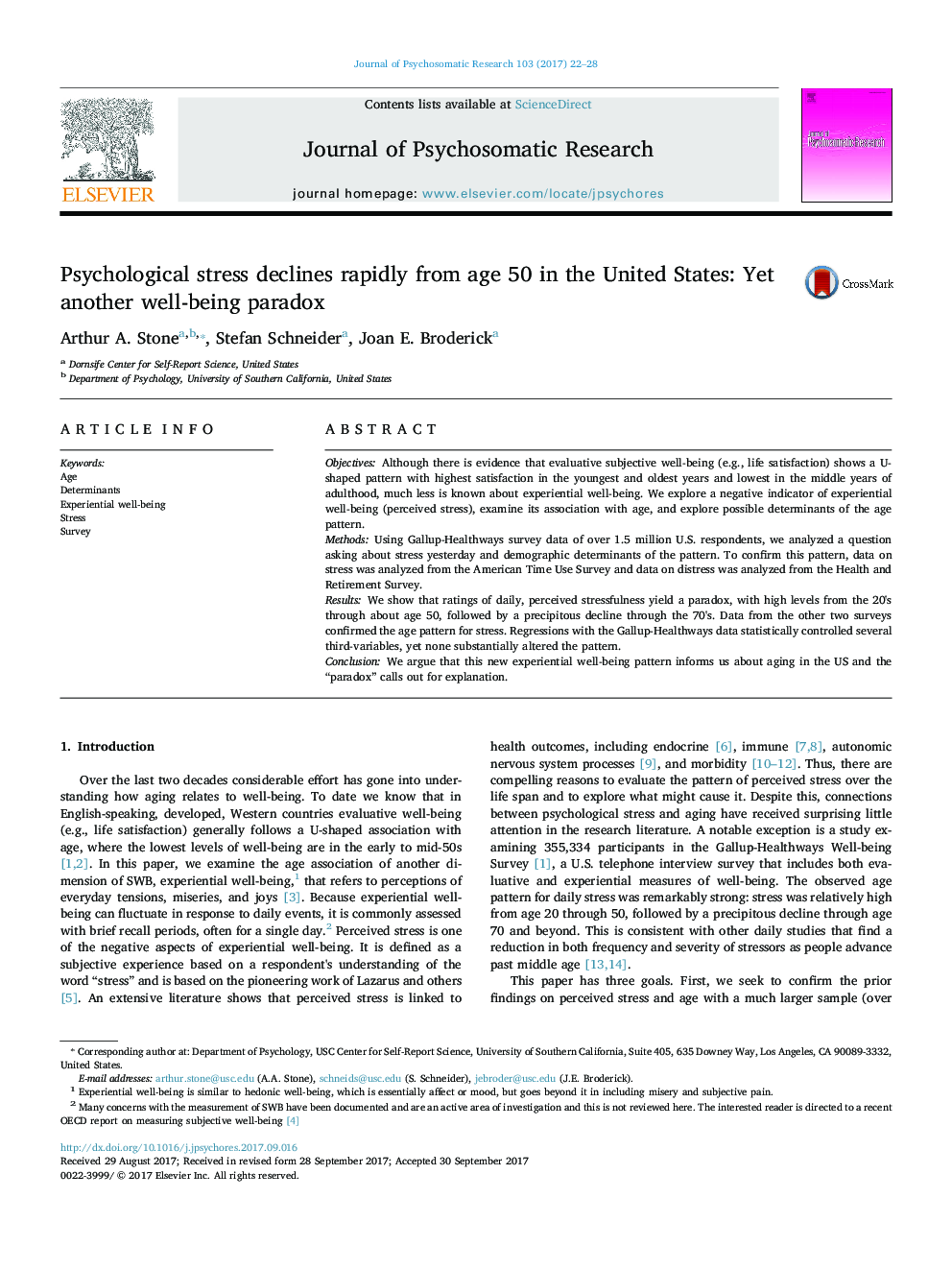| کد مقاله | کد نشریه | سال انتشار | مقاله انگلیسی | نسخه تمام متن |
|---|---|---|---|---|
| 5045768 | 1475892 | 2017 | 7 صفحه PDF | دانلود رایگان |
- Daily stress shows a pronounced decrease from 50 to 85Â years of age.
- The age-stress relationship was replicated across three large studies.
- Factors such as employment, health, or social support cannot explain the pattern.
ObjectivesAlthough there is evidence that evaluative subjective well-being (e.g., life satisfaction) shows a U-shaped pattern with highest satisfaction in the youngest and oldest years and lowest in the middle years of adulthood, much less is known about experiential well-being. We explore a negative indicator of experiential well-being (perceived stress), examine its association with age, and explore possible determinants of the age pattern.MethodsUsing Gallup-Healthways survey data of over 1.5 million U.S. respondents, we analyzed a question asking about stress yesterday and demographic determinants of the pattern. To confirm this pattern, data on stress was analyzed from the American Time Use Survey and data on distress was analyzed from the Health and Retirement Survey.ResultsWe show that ratings of daily, perceived stressfulness yield a paradox, with high levels from the 20's through about age 50, followed by a precipitous decline through the 70's. Data from the other two surveys confirmed the age pattern for stress. Regressions with the Gallup-Healthways data statistically controlled several third-variables, yet none substantially altered the pattern.ConclusionWe argue that this new experiential well-being pattern informs us about aging in the US and the “paradox” calls out for explanation.
Journal: Journal of Psychosomatic Research - Volume 103, December 2017, Pages 22-28
